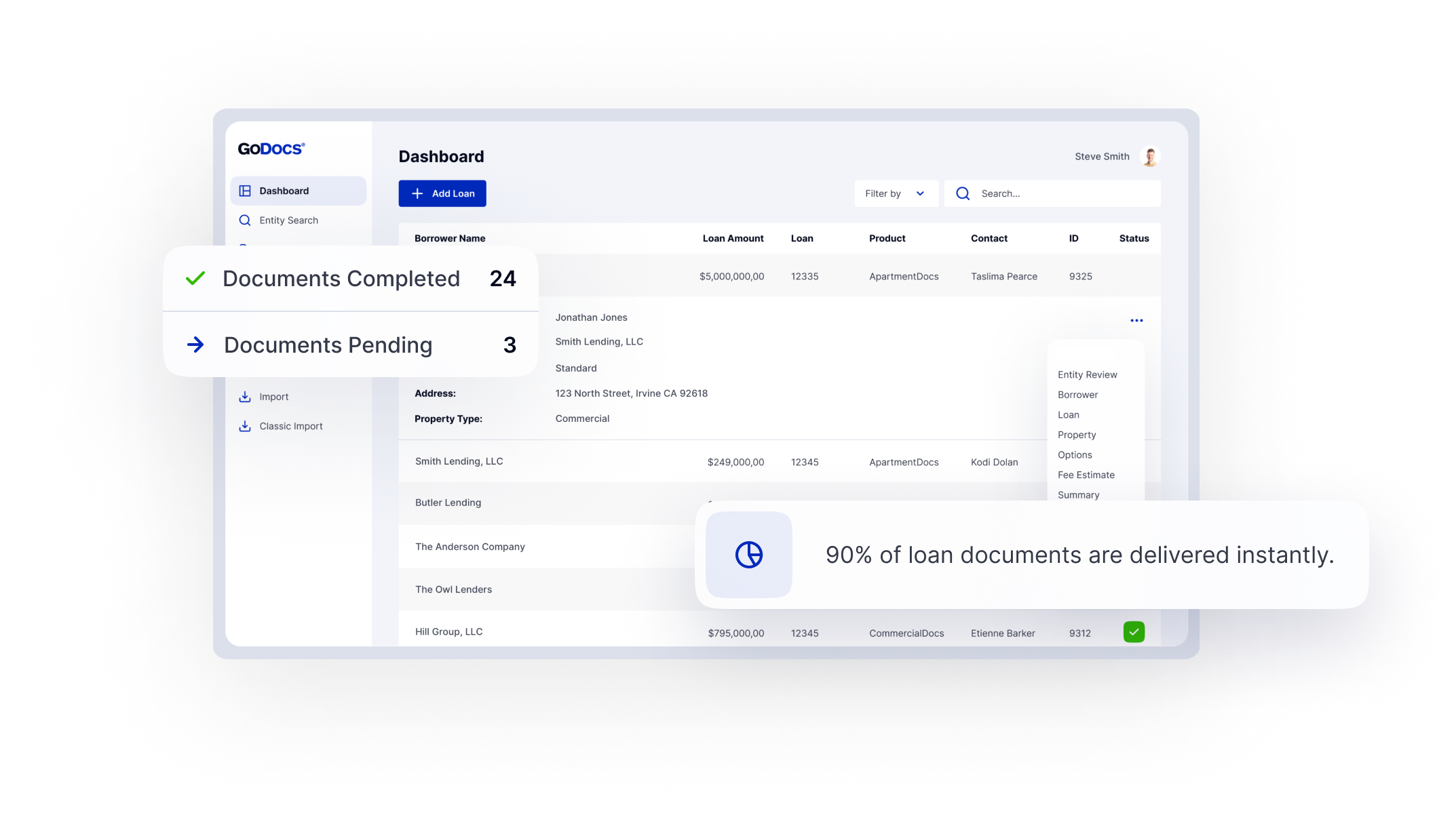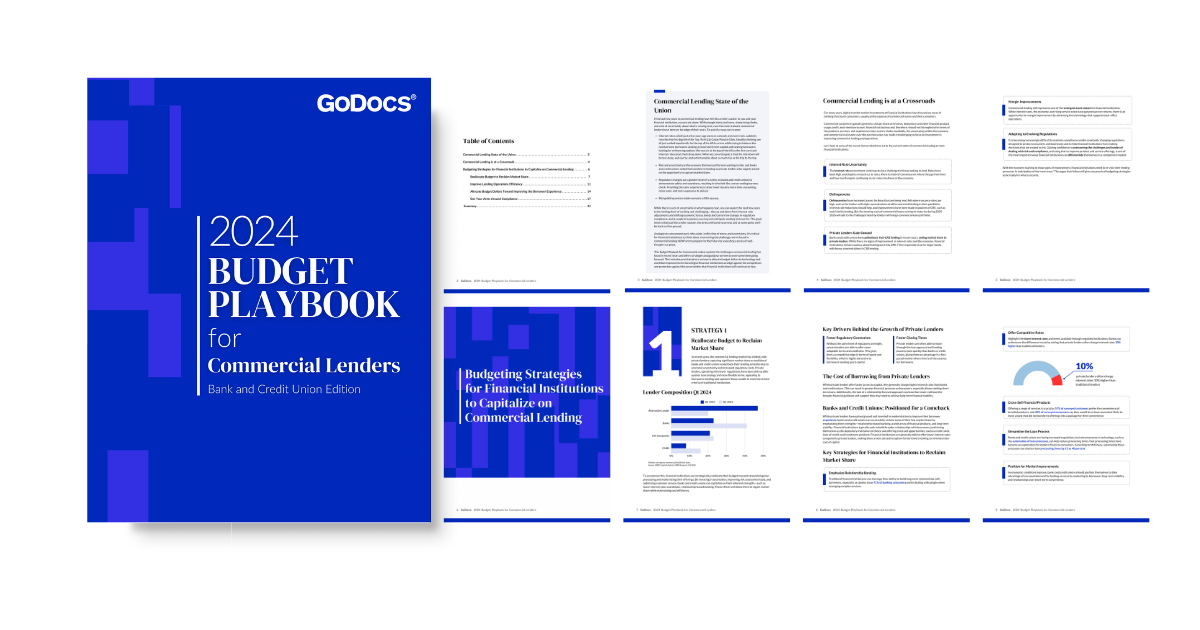It’s Not Worth the Risk
In a recent post, Too Little, Too Much: How Automated Residential Loan Packages Can Endanger Your Commercial Loan, we looked at some of the significant problems that can occur when commercial lenders try to modify automated residential loan packages repurposing these materials for commercial loans. This can leave the lender with “too much” or “too little” of what matters, thereby exposing them to risks down the road.
Let’s take a moment to look at the differences between what goes into a residential loan package and a commercial loan package. How significant are these differences, and what do they mean for commercial lenders who might consider modifying a residential loan package?
Differences Defined by Law
To start, it is important to understand that distinctions between commercial and residential lending practices are not just a matter of what happens in one industry vs. another. These are legal distinctions defined at both the Federal and State level.
The Federal Government and all States have clear legal distinctions between commercial lending and residential lending. This separation is reflected in each State’s consumer protection laws and regulations and in Federal consumer lending laws, e.g., TILA, RESPA.
Let’s Use California as an Example
For example, in California, a “residential mortgage loan” is defined as “any loan primarily for personal, family, or household use that is secured by a mortgage, deed of trust, or other equivalent consensual security interest on a dwelling… or residential real estate upon which is constructed or intended to be a constructed dwelling. ‘Dwelling’ means a residential structure that contains one to four units, whether that structure is attached to real property… [emphasis added].” (Cal. Fin. Code § 22012.) Whereas a “commercial loan” is defined as “a loan of a principal amount of [$5,000] or more, or any loan under any loan under an open-end credit plan, the proceeds of which are intended by the recipient for use primarily for other than personal, family, or household purposes [emphasis added].” (Cal. Fin. Code. § 22800.)
Furthermore, in connection with a “residential mortgage loan,” California law requires extensive, unique consumer-focused disclosures to be incorporated into the loan documentation and provides that certain business terms are not permitted or are otherwise heavily regulated such as prepayment of the loan. (See, e.g., Cal. Civ. Code § 2954.9.) Such laws and regulations do not necessarily exist for “commercial loans.”
Disclosures and Notices That Trigger Reg. Z Rules
One significant difference between commercial and residential loan packages comes in how they address language that might trigger Regulation Z rules. What is Reg Z? Reg. Z is a subset of the Truth in Lending Act of 1968 and typically applies to home mortgages or lines of credit, reverse mortgages, personal credit cards, and certain installment loans. The high-level goal of this legislation is to protect consumers from any unfair practices involving compensation that could get paid out to the originator of a loan.
Given the consumer protection aspect, it will be no surprise that disclosures and notices related to Reg. Z are required for residential loan packages. In commercial loan packages, however, such consumer-oriented protections are not required.
A commercial lender desires to be free of the Reg. Z rules. Why? Because they present a minefield of continually changing requirements, as consumer protections laws and regulations evolve to achieve the goals of the Truth in Lending Act. If a commercial lender includes in its commercial loan document package certain language and disclosures/notices which only are required for residential mortgage loans, the lender runs the risk that a court will view such loans as being subject to the Reg. Z rules and as not being free from such restrictions.
What does this mean in a real-world use case? Reg. Z language can become a real stumbling block when a lender takes action to enforce its loan documents in the event of a loan default by the borrower. It could, for example, prohibit a lender from foreclosing on the collateral property without compliance with all the Reg. Z rules, preventing a lender from collecting pre-foreclosure rents from the collateral property, etc.
Is there a workaround? Not really. Even if such packages are “revised” by the lender to fit commercial loans by trying to use a specialized residential loan package that addresses the Truth in Lending Act Requirements in a commercial loan context, a lender will be stuck with a package that clearly appears to be more residential than commercial in nature. Such ambiguity puts the lender in the difficult position of explaining to a court why its loan documents include residential loan materials when the loan is intended for business purposes. That is not a position any commercial lender wants to be in—no doubt.
Necessary Commercial Language
What does a commercial lender want to see in an automated loan package? The following are some of the core components a quality automated package would include for the commercial lending space.
- Necessary certificates reciting the true business purpose for the loan for non-owner occupied residential rental properties, but unnecessary and misleading Truth in Lending Act references and documents should not be included.
- Representations and warranties applicable only to a commercial, business loan and expressly excluding any interpretation of such loan documents being for a residential consumer loan.
The safeguards inherent in a quality commercial loan package such as the GoDocs platform include these key elements and address and mitigate, if not eliminate, the risks described above.
While it may seem convenient “in the moment” to modify a residential loan package for commercial loan transactions, it will only endanger a commercial lender in the long term. By leveraging products such as GoDocs and sticking with packages designed exclusively for commercial lending, lenders can better protect themselves and their customers.
Schedule a custom demo to learn more about GoDocs’ digital solution for commercial loans with a module specific to non-QM loans.






